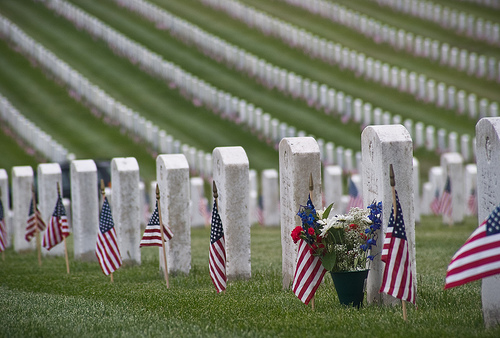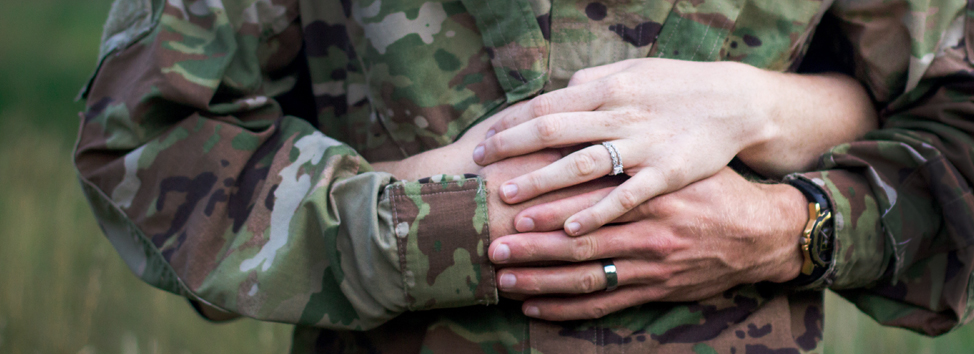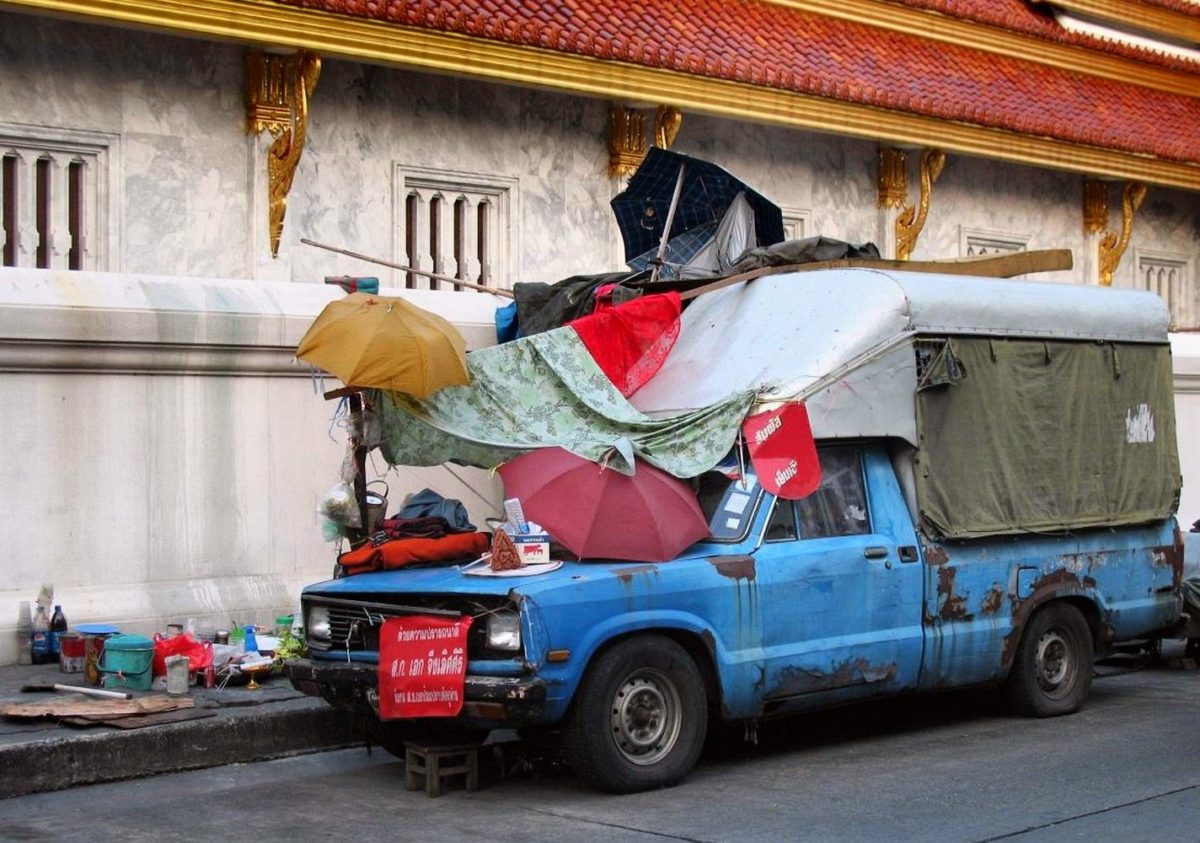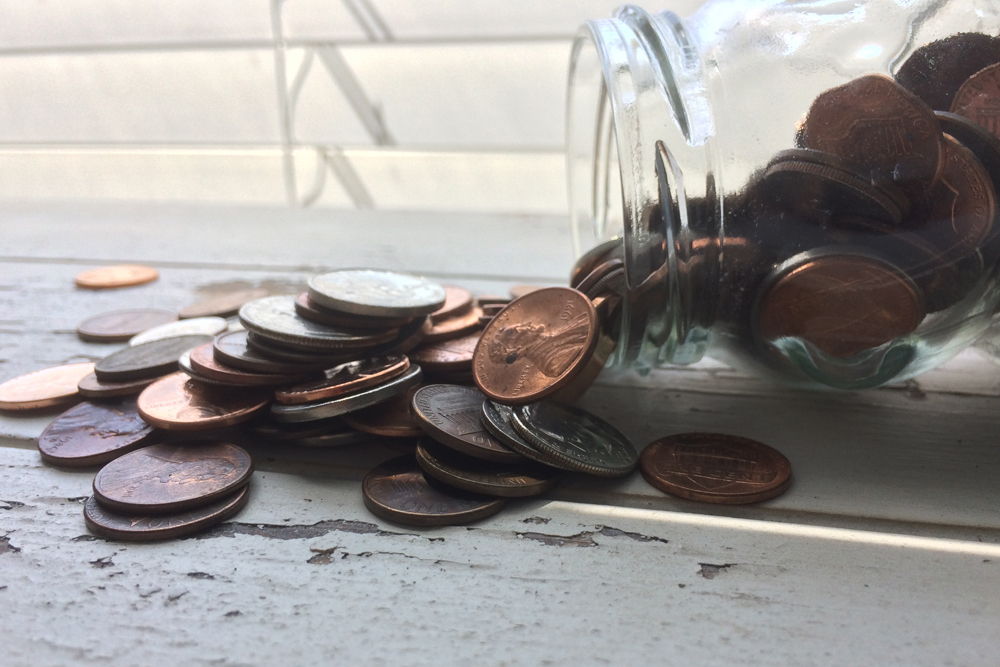During the month of May, Northwest Compass is celebrating all active military and veterans, leading up to Memorial Day, when we honor the brave men and women who have paid the ultimate sacrifice in service to our country. We are honored to have as one of our guest bloggers this month, Aidan Busch. As a winner in the VFW 2017 National Voice of Democracy Program, the Palatine High School senior wrote poignantly and eloquently about the true cost of liberty and freedom, and his responsibility to America. Aidan was sponsored by VFW Post 1337 in Mount Prospect, Illinois and his essay follows:
When I was seven years old, I made my first dollar. I remember less about how I made it and more about being incredibly anxious to spend it. I couldn’t wait to buy something to call my own, a possession that was mine, purchased with my own hard-earned funds. I didn’t realize at the time, however, that not everything can be purchased with a piece of green paper graced with the likeness of George Washington.
Some things can be bought, while others must be paid for. For instance, it’s easy enough to go to the grocery store and buy a loaf of bread. No one denies the fact that it is a simple matter to purchase a hammer and box of nails from the hardware store. One can buy an American flag or star-spangled bunting without too much difficulty. However, some things cannot be purchased with a swipe of a credit card. Some things are not readily accessible in Aisle 4 of the supermarket, between refried beans and Tabasco sauce. Liberty is one of these things. Liberty cannot be placed in a shopping cart, or casually tossed in your trunk to take home. No, Liberty is unique in that you cannot buy it. It is something that has been paid for by others. More specifically, veterans, and those who have laid down their lives in service of freedom. You cannot simply “get” liberty by filling out a mail-order form and putting a stamp on it. People have died, paying the ultimate price, so that I may live and enjoy my liberty. They gave up their opportunity to make choices and live their lives free of worry and persecution so that I, someone who has never known that struggle, may enjoy Liberty.
Liberty.
Patrick Henry is famous for his “Give me Liberty or give me Death” speech. But If I may be so bold, I would revise this statement. I would change it to “Liberty, because of death.” When I say death I don’t mean the sad kind, though death certainly is a melancholy affair. No, I mean sacrifice, the willing substitution of a life, an American life, so that I may live an existence of freedom and Liberty. Those who have paid have missed some of life’s most important moments, not being present for things that seem incomprehensible to miss to the average citizen. Events such as the birth of a child, the death of a parent, a daughter’s graduation, a son’s birthday party, supporting a spouse through an illnesses, teaching their child to throw a football, swing a bat or ride a bike. Missing opportunities to watch that squeaky first fifth grade band concert, or make countless trips to and from the soccer fields. They have missed these major or seemingly minor life opportunities so that I may enjoy them without fear or worry.
This is where I am responsible. Being American is unique in that each and every one of us is standing on ground stained with the blood of patriots. Many of us do not realize that our weekly trip to the grocery store is possible only because those who came before us, and fight for us, have died to make it possible. In some countries, one must kiss the entire family goodbye before leaving the house because they do not know if they will return. In America, we have the relative fortune of forgetting that we do not have these luxuries for free. They have been paid for. It is my responsibility to refuse to take these liberties for granted. It is my responsibility to ensure that every death and every act of service by an American, from March 5, 1770 to the day I die, is not wasted.
I can honor these sacrifices in a very practical way by the way I conduct myself on a daily basis. It is my personal responsibility to use these freedoms afforded to me at such a high price in a responsible manner that reflects the original sacrifice. Everyday opportunities abound, like running ahead to hold the door for a young mother pushing a stroller, or helping an elderly neighbor take out their trash. Removing my hat, placing my hand on my heart and standing tall when the national anthem is played. By putting others first, I am honoring what has already been done for me.
It is my responsibility to act as if I am walking on hallowed ground, every step paid for by the blood of Americans. It is the veterans, and those who have served our dear country in life and death, who deserve our undying gratitude and attention.
My responsibility is to remember. To remember those few, the white, black, Latino, Asian, male, female, and American few, who have given up their liberty, their peace, to give me mine. If we forget the sacrifice of these few, we will become an ungrateful nation incapable of appreciating the true value of our liberty. Because after all, it was not purchased, but paid for.
Northwest Compass wishes to thank friends and loved ones of service members who have given their lives in service to America, active military and veterans and Aidan Busch for allowing us to re-publish his essay here. We echo Aidan’s sentiment that it is our responsibility to never forget. We welcome your feedback in the comments.





